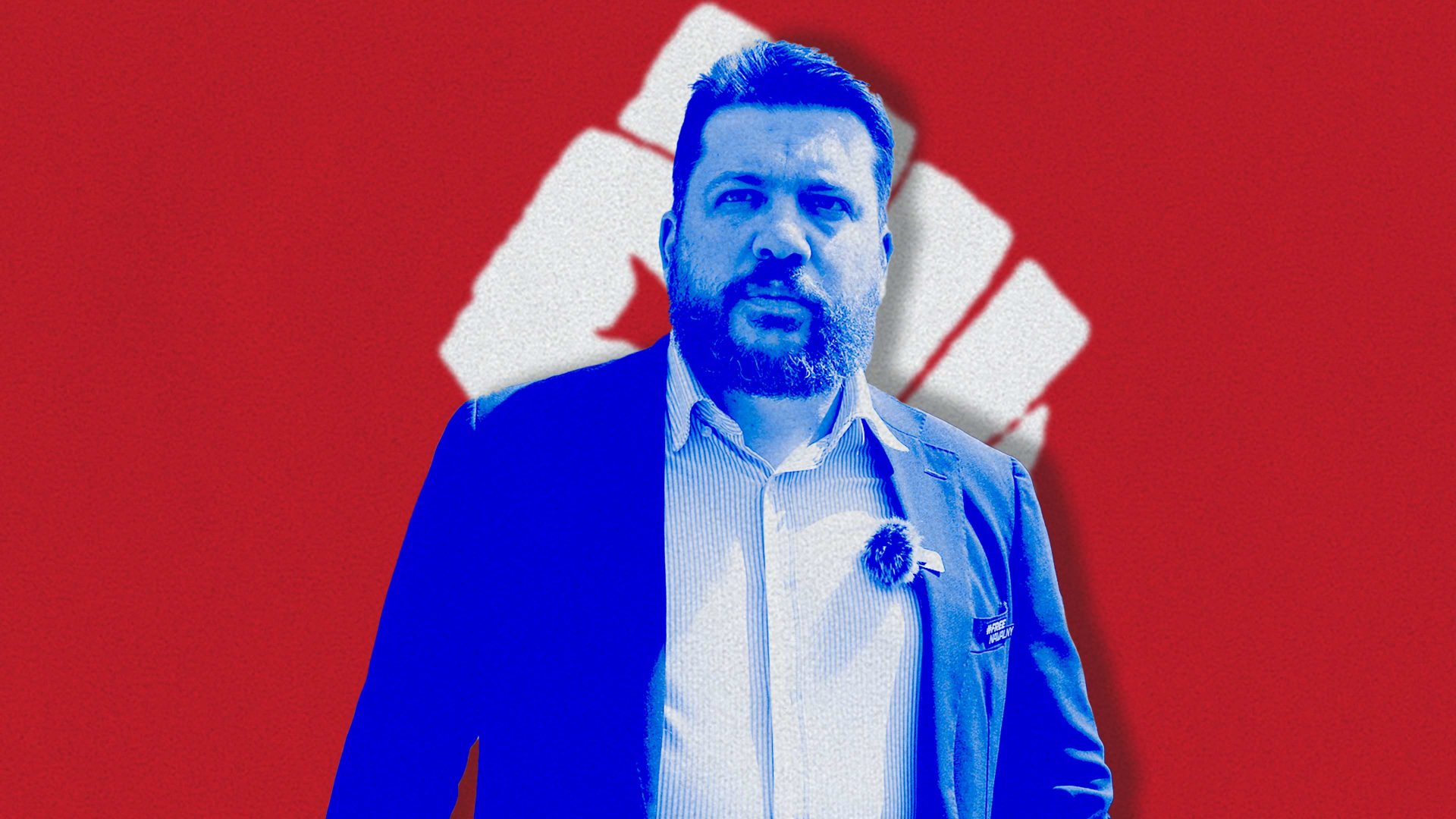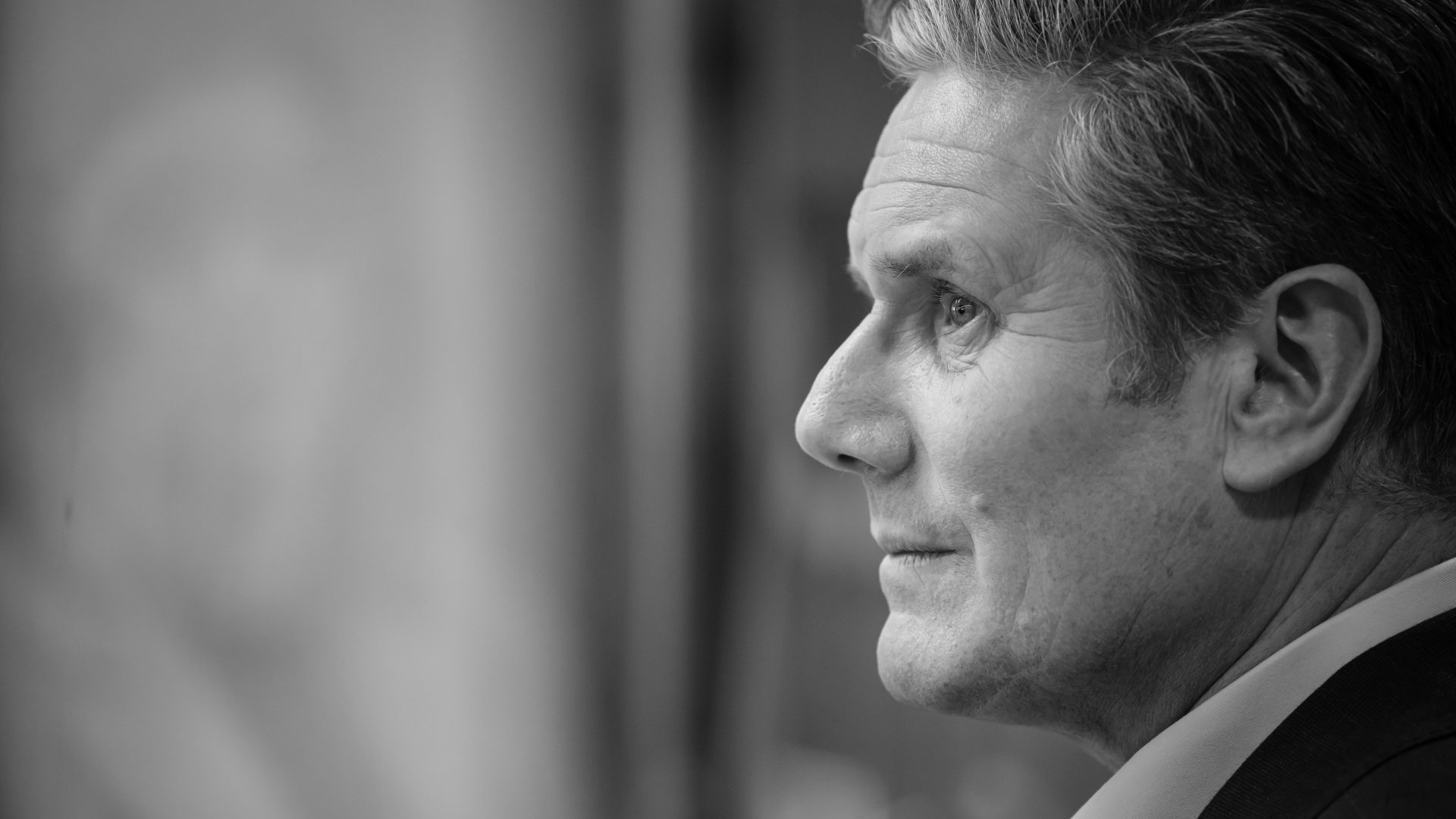Last week Alexei Navalny’s close ally, Leonid Volkov, was attacked outside his home in Vilnius. Assailants sprayed tear gas in his eyes and beat him with a hammer, injuring his head and legs. Volkov was well aware that he and his colleagues were at risk of attack from Russian agents, even in exile, and had said as much in a television interview recorded only hours before his assault.
The support for Ukraine in Lithuania is strong and the anger there at Russia’s war is palpable. I visited Vilnius for the first time in February and was moved by the large numbers of flowers and messages that had been left in honour of Navalny on a monument outside the Museum of Occupations and Freedom Fights.
The museum is housed in former KGB offices: beneath the offices there is a substantial prison with isolation cells, interrogation rooms, and an execution chamber. This prison could so easily return to its former use if Ukraine falls and Vladimir Putin – the unsurprising winner of Russia’s rigged presidential election – decides to reoccupy the free countries between its borders and Kaliningrad. People in Vilnius remember how many of their relatives were sent to Siberia during previous Soviet occupations.
Killing a political opponent or intimidating an exile with tear gas and a hammer are desperate measures. If, as seems likely, Putin was behind both crimes, he hasn’t achieved what he must have hoped for. Navalny remains a powerful symbol of resistance, a brave martyr who will be remembered for centuries, and his widow, Yulia Navalnaya, is fighting his cause. Volkov has already declared that he will continue his work, irrespective of threats and violence.
Philosophers use the Latin phrase, argumentum ad baculum (literally “argument to the stick”), for the use of threats and force to make someone accept a conclusion or act in a certain way. This is the idea that “might makes right”: the stronger party decides what the weaker one is to believe and do.
It works with the timid and with those whose spirits have been broken. But it’s unlikely to stop Russian dissenters, many of whom are extraordinarily brave – look at how they openly disrupted the weekend’s sham election by pouring ink into ballot boxes.
The argumentum ad baculum is sometimes described as a fallacy, an unreliable way of reasoning, but it barely merits that name since it isn’t an argument, it’s straightforward coercion. It’s a technique favoured by bullies and mafiosi. Whoever has the biggest cudgel decides what everyone must do and believe. Think what I tell you to think and do what I say, or I’ll beat or even kill you.
Perhaps Putin had hoped that the new gulag would cow Navalny into a renunciation of his opposition, like Grigory Zinoviev at the Moscow show trials. This former head of the Comintern, whom Stalin’s henchmen somehow persuaded to confess to conspiracy, declared: “My defective Bolshevism became transformed into anti-Bolshevism, and through Trotskyism I arrived at fascism.” He was still shot. No such confession came from Navalny’s lips or pen.
In the 17th century, in his A Letter Concerning Toleration, John Locke pointed out that it’s irrational to try to change people’s beliefs by force. The threat of torture might make someone renounce a heresy, but uttering words to save yourself from pain is not the same as meaning them.
Beliefs cannot simply be adopted at will and souls won’t be saved by empty statements of belief. The relationship between beliefs and reality is that we strive to have true beliefs based on available evidence and arguments. What we say we believe isn’t necessarily what we do believe.
Those who were coerced against their will to vote for Putin didn’t vote in any meaningful sense. They just made a pragmatic decision to tick a box so as not to make things worse for themselves.
Yet perhaps Locke was wrong to claim that violence can’t change beliefs. In George Orwell’s Nineteen Eighty-Four, Winston Smith writes in his notebook “Freedom is the freedom to say that two plus two make four.”
Smith is taken to Room 101, where O’Brien tortures him. He is utterly broken. O’Brien holds up the fingers of his left hand with the thumb concealed and says, “There are five fingers there. Do you see five fingers?” Smith replies, “Yes”.
Orwell tells us that for a fleeting instant, Smith really did see five fingers. Navalny, in contrast to Smith, died without doubting that two plus two equals four. There are no signs that Volkov’s or Navalnaya’s commitment to truth will falter.



